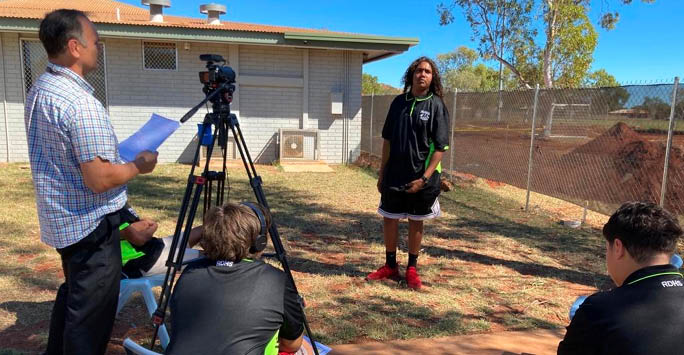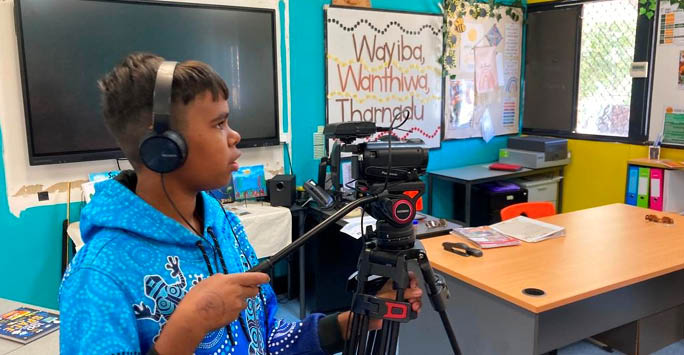Truth-telling, film-making, & skill-building
In Australia, race, class, and the criminal justice system have sat together in a complicated and disastrous relationship for over two centuries. AHRC-funded research uncovers the legacies of Australia's criminal justice system on Aboriginal communities.
Research from the University of Liverpool has produced a series of documentary films offering a unique insight into Australia’s Indigenous communities by equipping young people with filmmaking skills.
This four-year research project, in partnership with the Universities of Liverpool, Leeds, Tasmania, and Liverpool John Moores University, has explored the history and legacy of Australia’s most ‘crime-plagued’ areas. Funded by the Arts and Humanities Research Council (AHRC), this research has informed a series of documentary films which offer a nuanced understanding of the complexities within these communities.
The films show that in Roebourne, Western Australia, challenges are starkly evident, with young people bearing the brunt of social disadvantages. Despite this, the Aboriginal community showed resilience, emphasising strong collective identities, a sense of hope, and a dedication to preserving culture and advancing education.
Professor Barry Godfrey and Dr Katherine Roscoe from the University of Liverpool, together with filmmaker Professor Paul Cooke at University of Leeds, facilitated media training workshops at Roebourne High School, which equipped Indigenous young people with invaluable filmmaking and storytelling skills. Beyond raising awareness, the project empowered these children to shape their own narratives and forge deeper connections with their community and heritage.
Watch the documentary film
A Long Way To Go from Paul Cooke on Vimeo.
These films are more than just stories; they are testaments to resilience, hope, and the enduring strength of Indigenous communities.
Co-produced short films
These short films were made by the students of Roebourne District High School as part of a UK Arts and Humanities Research Council-funded project supporting young people to make their voices heard in and beyond their communities.
Our School from Paul Cooke on Vimeo.
By amplifying Indigenous voices and challenging stereotypes, we hope to spark meaningful dialogue and foster greater understanding and empathy.
My Future from Paul Cooke on Vimeo.
The students made two films about their lives and their hopes for the future, which present a very different narrative to the usual stories of crime, drug-use, domestic and child sexual abuse in Roebourne.

Perhaps the longest-lived legacies of this project will be the skills that the young people learn in film- and interviewing techniques, raising aspirations, and providing routes to greater involvement in their own community and its past and future.
These films were officially launched in Australia and the United States in May 2024 and aim to raise awareness of the lived experiences of Indigenous prisoners, and the legacies left behind.
The colonial legacies of crime, racist policing, and the over-imprisonment of indigenous people were also explored in films - Roebourne and The Art of Fremantle Prison. Documentary film, 'Roebourne', received recognition from the ABC and The Guardian. The documentary was also awarded the best film on History/Social Movements at the Sydney Film Festival.

Our intention has been to explore the ways in which arts and humanities research can inform approaches to inclusive participatory decision-making, community engagement, co-production, and human rights. In all of our collaborations we have acknowledged the traditional owners of the land, paying respects to their Elders, past and present.